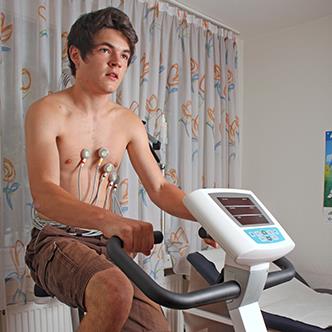
Recommendations that help doctors interpret results of heart screenings will prove very useful in preventing sudden cardiac death in young athletes, based on a recent study published in the Journal of the American College of Cardiology.
While rare, sudden cardiac death is the leading cause of death in young athletes and is often due to undiagnosed heart conditions. Fortunately, most of these underlying conditions can be identified with a simple test called an electrocardiogram (ECG), which checks for problems with the heart’s electrical activity. That’s why in 2010, the European Society of Cardiology recommended ECGs in all young athletes to help identify any conditions that may increase their risk for sudden cardiac death.
However, many worried about the added costs associated with routine testing, especially due to the high number of abnormal ECG readings. In 2015, a team of experts released standards for interpreting ECG results in young athletes. These recommendations were designed to help doctors determine what results merit additional testing, and which do not.
To see how these recommendations could impact health care costs, researchers analyzed data from nearly 5,000 young athletes in the UK. Athletes were between the ages of 14 and 35 and underwent mandatory ECG testing between 2011 and 2014. Participants also completed health questionnaires to identify any red flags related to heart health.
Overall, less than 2% of athletes had an abnormal health questionnaire or physical exam. After further testing, only 15 athletes (0.3%) were diagnosed with serious cardiac conditions. The overall cost of testing was $110 per athlete and $36,000 for those with a serious diagnosis.
However, the new recommendations that standardize ECG interpretation would significantly bring down those costs, according to researchers. When applying the new recommendations, researchers estimate that unnecessary testing would decrease by up to 66%. This drop in tests would save an estimated $30 per athlete and nearly $10,000 per serious diagnosis.
What findings show, according to authors, is that improved guidelines have helped make routine ECG screenings in young athletes more efficient. The recommendations released in 2015 will help reduce costs while still detecting serious heart conditions in athletes. Ultimately, experts believe that the cost associated with routine ECG tests will be outweighed by the number of prevented cases of sudden cardiac death in young athletes.